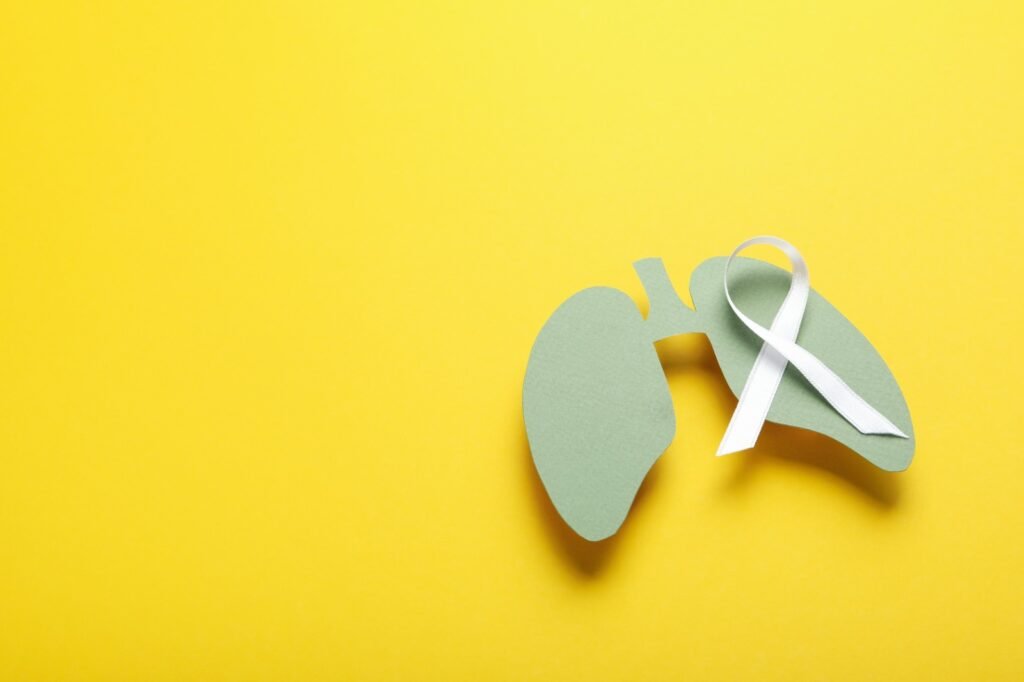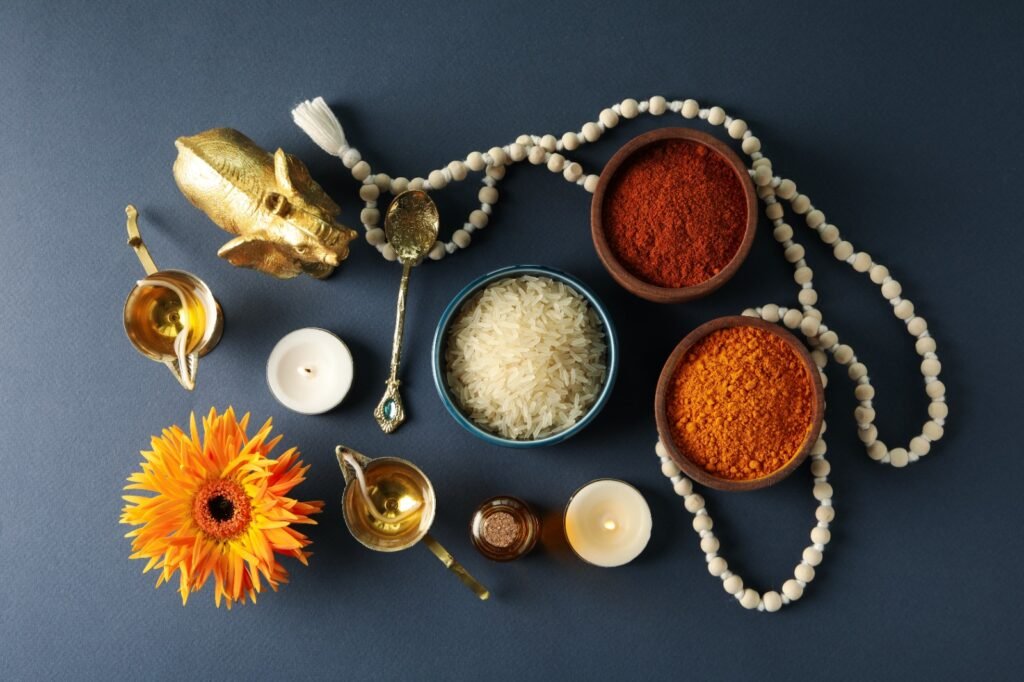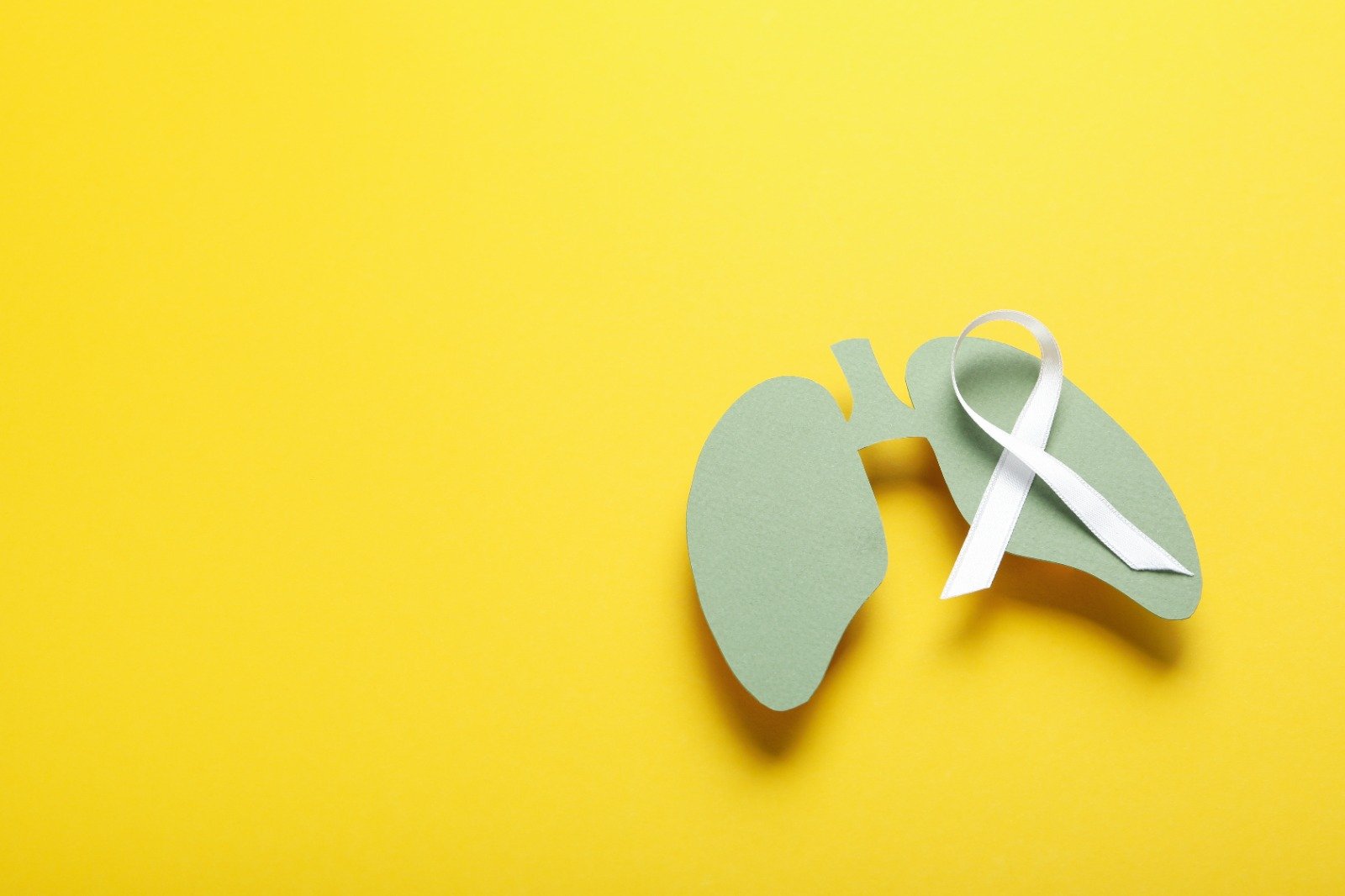What is Lung Cancer?
There are two types of Lung Cancer:
1) Non-Small Cell Lung Cancer (NSCLC):This is the most common type of cancer and tends to grow slowly. There are several subtypes of Non-small cell lung cancer (NSCLC).
2) Small Cell Lung Cancer (SCLC):It is more aggressive type of lung cancer and spreads rapidly. Small cell lung cancer (SCLC) generally have poor prognosis and is less common than Non-small cell lung cancer (NSCLC).

Causes of Lung Cancer:
2) What is Ayurveda?

Core principles and certain key aspects of Ayurveda
a) Balance of Doshas: Ayurveda strives and preaches in maintaining balance between three doshas: 1) Vata. 2) Pitta. 3) Kapha. Doshas are the guiding principle of the body.
b) Prevention of Diseases: Ayurveda strongly emphasizes and believes in prevention of disease rather than just curing the disease.
c) Diet and Nutrition: Ayurveda strongly believes and preaches a specific diet and nutrition that help to maintain balance of doshas. A balance between the doshas is key for a healthy life and helps in curing disease.
d) Ayurvedic Lifestyle: Ayurveda strongly advocates daily routine exercises, daily sound sleep, stress management etc.
e) Panchakarma: Panchakarma helps to root out dustha doshas and so helps to ameliorate disease. Panchakarma helps to detoxify the body and to restore the balance of the doshas.
f) Yoga and Meditation: Yoga and Meditation is most important for well-being of individual. Yoga and Meditation also helps in amelioration of disease.
3) How to manage ‘Lung Cancer’ through ‘Ayurveda’?
Ayurveda, a traditional system of Indian medicine, is well known for its approaches in Managing Lung Cancer through Ayurveda, particularly in suppressing or ameliorating the growth of cancerous cells. The etiology and treatment aspects of Lung Cancer in Ayurveda are traditionally described and correlated with the Kshataja and Kshayaja types of Cough/Kasa (क्षतज और क्षयज कास). These concepts are detailed in the Charak Samhita Chikitsasthana, Chapter 18.
Ayurveda strongly believes and preaches in finding the causative factor of lung cancer and prevent it from originating. The treatment aspect of lung cancer is divided three main parts:
a) Oral Ayurvedic Medications in Lung Cancer
b) Panchakarma in Lung Cancer
c) Pranayama in Lung Cancer
Oral Ayurvedic Medications in Lung Cancer
A) Shwasa Kasa Chintamani Rasa (Suvarna Yuktha) in Lung Cancer
Key Ingredients of Shwasa Kasa Chintamani Rasa is
- Suvarna Bhasma (Ash of Gold).
- Shudda Parad (Purified Mercury)
- Shuddha Gandhak (Purified Sulphur)
- Suvarnamakshik Bhasma (Chalcopyrite)
- Abhraka Bhasma (Calcined Mica)
- Loha Bhasma (Calcined Iron)
- Mouktik Bhasma (Calcined Pearl).
Benefits of Shwasa Kasa Chintamani Rasa
- Shwasa Kasa Chitamani Rasa alleviates different symptoms in lung cancer patients.
- Shwasa Kasa Chitamani Rasa provides significant relief in persistent cough in lung cancer patients.
- Shwasa Kasa Chitamani Rasa improves respiratory function in lung cancer patients.
- Shwasa Kasa Chitamani Rasa boost overall respiratory health in lung cancer patients.
B) Vasa Ghrita in Lung Cancer Patients
Vasa Ghrita is a traditional Ayurvedic formulation beneficial in Managing Lung Cancer through Ayurveda and various other ailments such as Raktapitta, Shwasa, Kasa, and Jirna Jwara. Prepared according to the methods mentioned in the Charaka Samhita, Vasa Ghrita utilizes Vasa (Adhatoda vasica), which is widely described in Ayurvedic literatures and available throughout the year.
Vasa (Adhatoda vasica) is used to treat multiple chest and respiratory ailments. Vasa (Adhatoda vasica) is used treat to diseases with excessive phlegm and menorrhagia. Additionally, Vasa (Adhatoda vasica) proves beneficial in impotence and bleeding piles. Vasa (Adhatoda vasica) is also good anti-spasmodic and anthelmintic drug.
Method preparation of Vasa Ghrita
Benefits of Vasa Ghrita
- Expectorant in Lung Cancer Patients: Vasa Ghrita helps in expelling phlegm and helps to clear the respiratory passage.
- Bronchodilator in Lung Cancer Patients: Vasa Ghrita helps in easing breathing in Lung Cancer Patients.
- Anti-inflammatory in Lung Cancer Patients: Vasa Ghrita proves beneficial in reducing inflammation in the respiratory tract.
- Soothing in Lung Cancer Patients: Vasa Ghrita helps to soothe the respiratory tract and improves overall health of the respiratory passage.
Nasya in Lung Cancer Patients
Method of administration of Nasya
Preparation of Nasya: The medicated oil is warmed till comfortable temperature.
Administration of Oil: Gently Oil is instilled in both the nostrils.
Post-Treatment: The patient is allowed to rest for short while allowing oil to penetrate.
Pranayama in Lung Cancer Patients

Benefits of Pranayama:
1) Pranayama increases the lung capacity, digestion, and overall vitality in lung cancer patients.
2) Pranayama reduces stress, anxiety, and depression in lung cancer patients.
3) Pranayama promotes self-awareness and foster’s inner peace in lung cancer patients.
About Team ‘Cancer In Ayurveda’
Our Team ‘Cancer In Ayurveda’ consists of Ayurvedic practitioners who are dedicated to providing patients with the best possible care for cancer. We at Team ‘Cancer In Ayurveda’ believe that Ayurveda can complement modern medicine and provide patients with a more comprehensive approach to their care. Our personalized approach to treatment, extensive knowledge of Ayurvedic herbs, use of Panchakarma, and modern parameters make us one of the most dynamic teams of Ayurvedic cancer experts in Mumbai.
We at Team ‘Cancer In Ayurveda’ are committed to helping patients manage their condition effectively and provide them with the support and guidance they need throughout the process.

